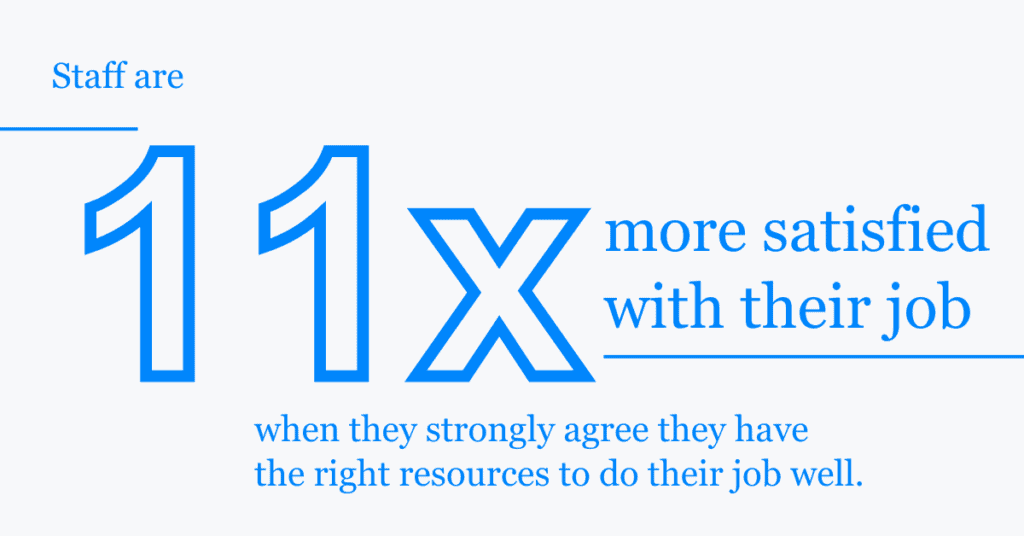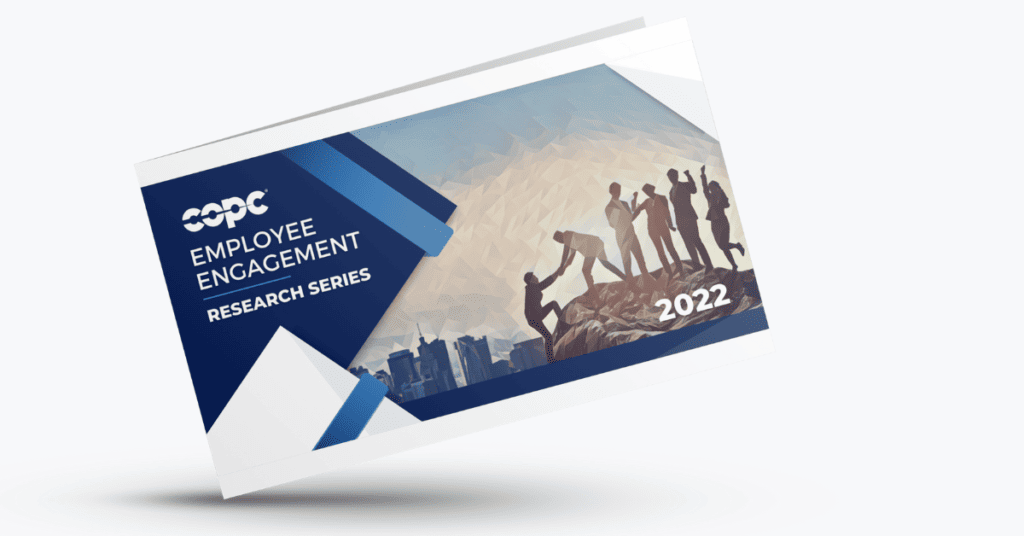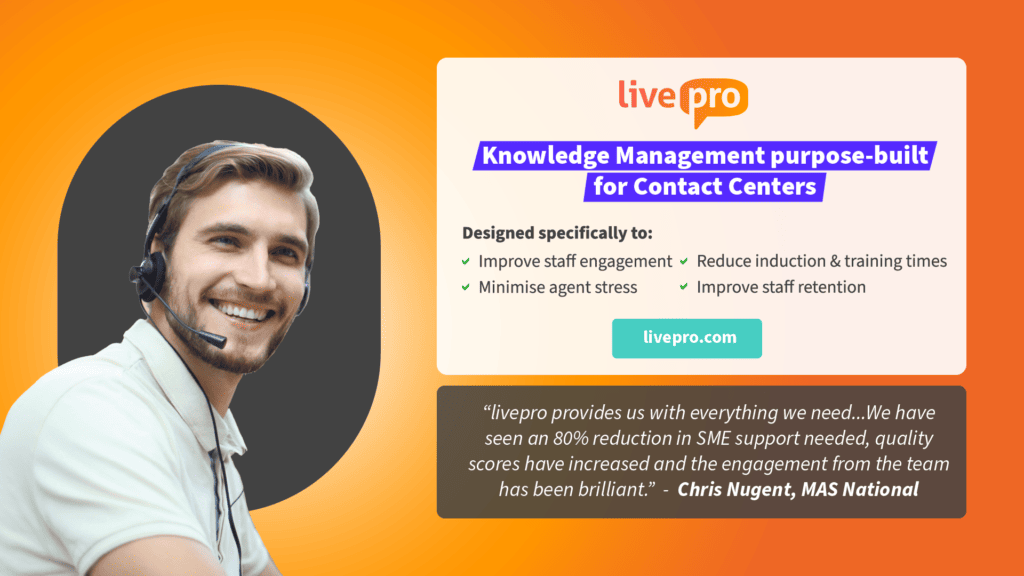
October 28, 2022
The New Zealand Employee Engagement Research Report is timely as organisations are battling to secure talent in tight employment markets globally.
Insights into staff engagement, satisfaction levels and key initiatives to retain the talent you have are invaluable. This report has clear messages regarding the importance of maintaining the fundamentals of good management to keep your teams as engaged as possible.
- 92% of staff who say they don’t have the right resources to do their job well are not satisfied in their role (*page 73).
- Frontline staff satisfied with their jobs are 4.5x more likely to want to continue with their current organisations over the next 12 months (*page 10).
- When the staff believes they have the right resources to do their job well, they are 4x more likely to remain in their current roles (*page 74).

*New Zealand Employee Engagement Report, 2022
Get More Insights: Employee Engagement Research Series

Our research aims to provide CX leaders with the most comprehensive and in-depth insights for organizations to incorporate into broader strategies. You’ll learn how satisfied contact center staff are with their jobs, understand what drives employee satisfaction and distinguish the differences between countries.
The findings align with the unanimous feedback livepro receives from our clients and their agents:
- Having a tool that agents can trust and rely on to answer any customer question independently improves confidence, retention and engagement.
- Using a purpose-built system for the fast-paced contact centre environment means less stress and anxiety, as agents know they can find the answers at natural conversational speeds.
- More importantly, interactions with callers are more engaging and flow better when they’re not placed on hold while agents search for answers.
Having well-functioning and reliable tools is even more critical in a work-from-anywhere environment, where agents can’t turn to a colleague or team leader for help.
Unfortunately, not all knowledge management systems are suitable for contact centres and often aggravate agents. Poorly designed tools cause agents to struggle to find the right article. When they find the article, there may be uncertainty about whether it is the most current. Adding to the frustration is having to read and interpret long documents or PDFs – all while the customer is on hold. As a result, agents experience frustration regularly, and organisations experience unnecessary loss of staff as a result.
Contact Centre Knowledge Management Software
A purpose-built knowledge management system designed specifically for customer service environments understands that customers want answers, not information. These knowledge management systems are built with features that deliver the most up-to-date, approved answers to the user at the speed the agent needs.
Both the organisation and customer benefit from agents using the right type of knowledge system as well. Customers leave the call confident they have the correct answer, and their problem is resolved, reducing call-backs and, most importantly, they’re more likely to remain a customer.
Organisations benefit from reduced turnover and enjoy significant improvements in average handle time (AHT) and first contact resolution (FCR) with fewer complaints. At the same time, they benefit from unexpected improvements in speed to competency AND reduction in induction training requirements because they no longer need to train recruits to memorise policies, processes and product information.

